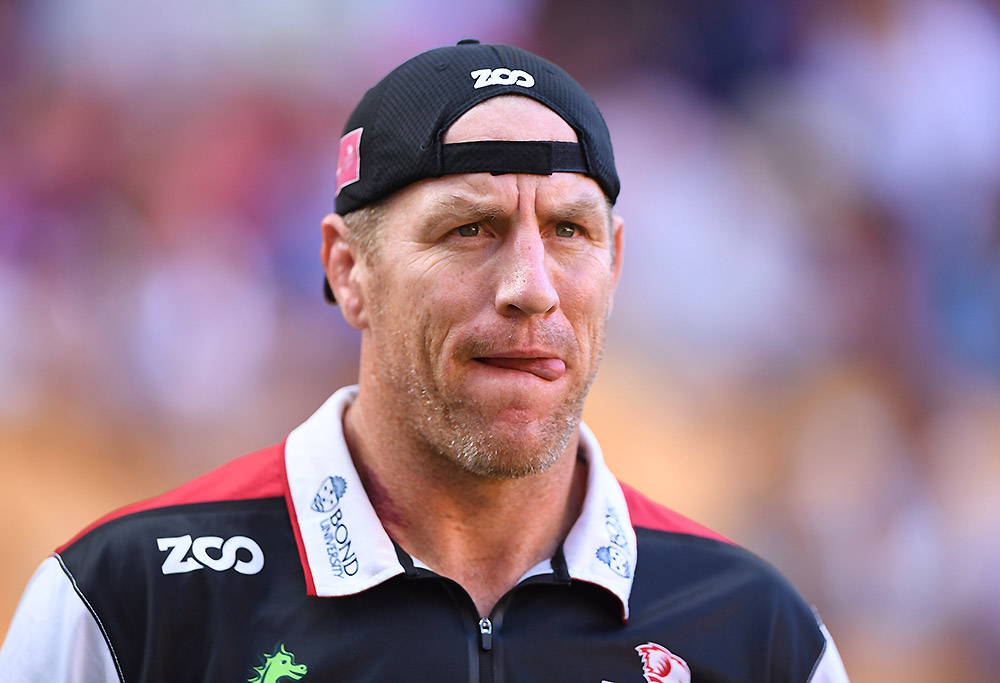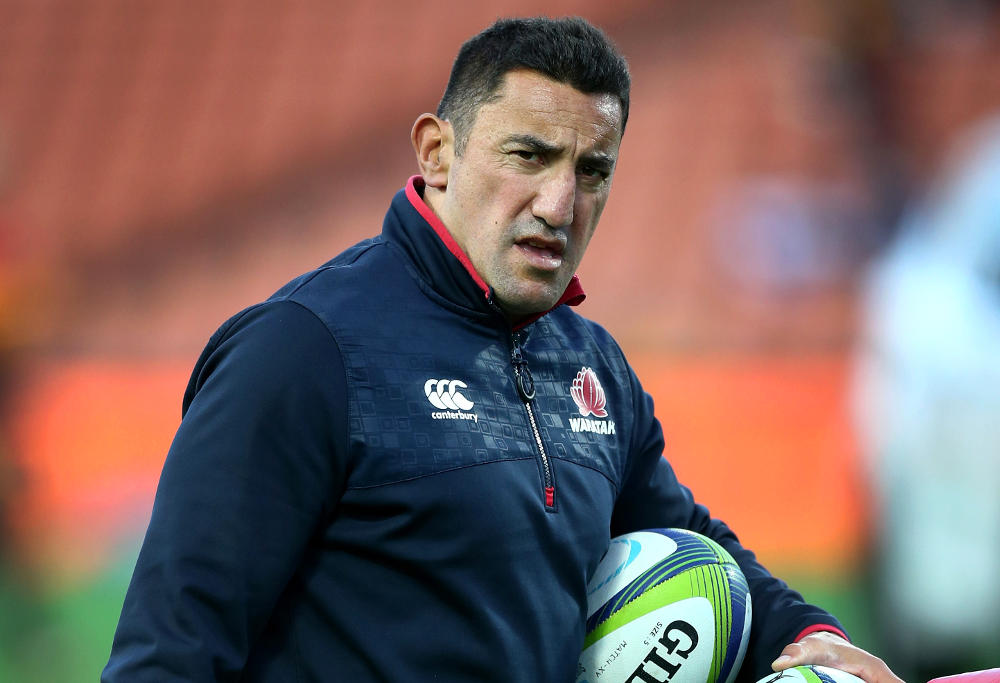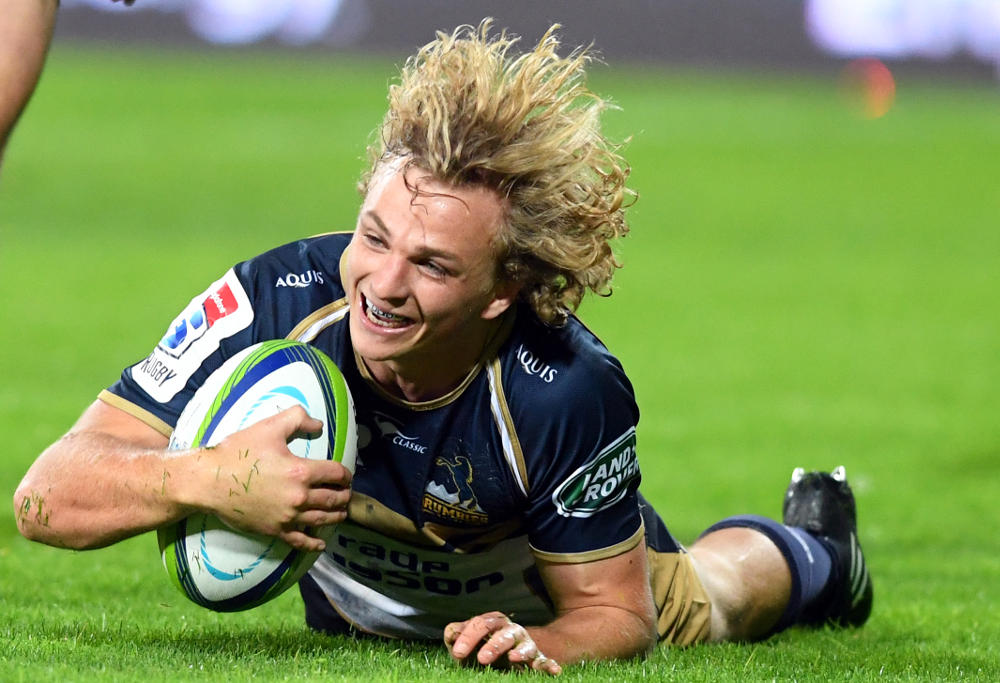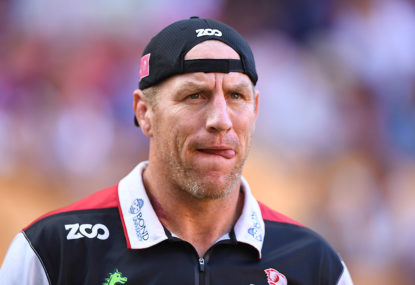Rugby watching was made more difficult this weekend due to the 100th anniversary celebrations of one of the world’s venerable, hallowed institutions of learning, Taumarunui High School.
School reunions are equal measures fun and terror. People with fading memories and failing eyesight trying not get caught out peering at the name-tags of old schoolmates they are supposed to know, and others eyeing off ex-girlfriends and boyfriends either ruing a missed opportunity or grateful for a bullet dodged.
And what about the now ripped, extroverted ex-geek, with multiple properties, helicopters and partners who, back then, couldn’t even pay a girl to share his sandwiches lest a pimple explode at an inopportune moment?
Unsurprisingly, alcohol proved to be a great leveler and the 600+ crowd mingled with enthusiastic good cheer, but when the party was over it was a relief on Sunday to finally be able to breathe out, allow the gut to resume its normal resting position and focus on trying to make sense of Round 3 Super Rugby action.
It seems as if most people with an opinion in New Zealand consider Colin Cooper to be the weakest of the five Super Rugby coaches – a step down from predecessor Dave Rennie, lacking presence and likely overseer of the Chiefs’ decline in 2018.
Similarly, many fans have been quick to rate new Reds coach Brad Thorn as out of his depth – too green, too forward focused, too ignorant of new tackle laws, too rugby league, too New Zealand and too anti-Quaded.

( AAP Image/Dave Hunt)
Frustrated Waratahs fans put their coach, Daryl Gibson, on notice well before the season started – deliver results before Round 5 or else don’t bother coming in to work.
This weekend, however, provided an opportunity to look at all three coaches in a different light and, at the same time, consider the expectations that rugby fans have of coaches and whether these are realistic or not.
What say the softly-spoken Cooper is a man who suffers because humility and reluctance to reside in the media limelight is mistaken for lack of rugby smarts?
What of Thorn, a man marked as heartless in his treatment of Quade Cooper, but is merely determined to ‘clean the house’ to take a step backwards to move forwards, and establish the type of team culture that he knows first-hand has proven successful at the Brisbane Broncos and the All Blacks?
And what if Gibson isn’t the clueless buffoon many paint him as, but was handed a team suffering a post-Super Rugby championship hangover, minus some of its hardest working and world-class players like Jacques Potgeiter and Adam Ashley-Cooper?
Super Rugby is long, arduous and attritional. If travel and injury strike at the wrong time, sides can fall into a hole that can be almost impossible to climb out of.
On that basis, no coach can allow themselves any comfort after two rounds, however it is fair to say that all three – Cooper, Thorn and Gibson – are entitled this weekend to feel that the knockers have been put back in their place.

(AAP Image/ David Rowland)
After a tough trip to Christchurch and an even tougher one up SH1 to Auckland (more on that later), the loss of his tall timber before the match, and last-minute positional changes, the Chiefs would have been excused a loss to a Blues side that everyone has marked as this year’s improvers.
It was not to be, the Chiefs dominant early and eventually converting enough of their opportunities – and defending manfully – to clinch the game 27-21.
Thorn’s task seemed even more forlorn, facing the favoured Brumbies with two of his first-choice forwards out due to suspension after the Reds’ horror trip to Melbourne. But despite not scoring a try, the Reds won going away, 18-10, off the back of a well organised and efficient defensive line and a willingness to play field position at the right times.
Gibson’s Waratahs didn’t win, but a 24-24 draw in Durban against the well-rested Sharks was surely as good as a victory. It wasn’t always pretty, and their scrum looks a fragile proposition while they await the return of Sekope Kefu, but any Waratahs fan who isn’t happy with six competition points after opening matches against South African opposition isn’t being fair-dinkum.
In fact, you could argue that all three sides – the Chiefs, Reds and Waratahs – were far from as cohesive and fluent as what their coaches and fans would like them to be. But it was something else that all three sides had in common which papered over any deficiencies and ensured their results.
[latest_videos_strip category=”rugby” name=”Rugby”]
It is clear that – whatever fans might think of the coaches – the players at all three franchises are ‘in tight’ with their respective programs, and are playing for their coach.
In itself that is not enough to win the competition, but it is certainly a solid base from which to launch an assault on the summit when other factors such as depth in the playing roster and quality at the top of it, and luck, align.
And it is most certainly a strong indication that none of these sides – in particular, their coaches – are as hapless as what the naysayers would have us believe.
A month ago Gregor Townsend was in the same boat, handed the reins in the wake of the impressive Vern Cotter, charged with continuing Scotland’s march up the world rugby rankings. Yet after a comprehensive thumping in Cardiff, it seemed to many that whatever Cotter had Townsend didn’t have, and Scotland’s dawn was a false one.
If it is true that the court of public opinion decrees that a coach is only as good as his last game, Townsend’s elevation last week from the outhouse to the penthouse, was as swift and decisive as his players’ first half demolition of England.
While Cooper, Thorn and Gibson’s achievements were more modest than Townsend’s Calcutta Cup success, all three coaches should today be congratulated for getting the job done just as heartily as they have been bagged for being deficient.
Don’t hold your breath waiting however, because balance and perspective are not often in evidence where assessment of coaches is concerned.
The question begs to be asked – just how much influence does a coach have over the fortunes of his team? How could Townsend, a coaching dunce in Cardiff, suddenly transform into a coaching genius back in Edinburgh, against a side most pundits considered to be superior?
How could Thorn, seemingly a fish out of water in Melbourne, with a depleted side, suddenly get the better of the Brumbies, a side that almost everyone believes (believed?) will top the Australian conference? What magic did he uncover and apply in a week?
The answer, of course, is that professional coaches at the elite level are almost universally not dunces, just as they almost certainly do not possess superhuman qualities or secrets known to them only that might provide them with a unique edge.

(AAP Image/SNPA, Ross Setford)
Professional clubs or franchises are complex organisations operating on multiple levels, where the contributions of many highly trained and skilled individuals, from conditioners and medical staff to performance analysts and specialist coaches – and yes, the head coach – all come together to present the best match-day 23 and the best chance of success on a given day.
These clubs are also largely homogenous, and the differences between them – while they are important – are typically at the margins, and often reflect differences in underlying club culture (eg the difference between the Crusaders and the Blues) more than any direct influence of the head coach.
Consider also the role of rugby directors and bean counters, working to fit the best possible combination of contracted, un-contracted and prospective players into a salary cap, that will deliver optimal results not only this year but next year and the one after.
And what of the players? Was it really the influence of Thorn that was behind Scott Higginbotham and Lukhan Tui’s brain explosions in Melbourne? I’d suggest as much as it was Gibson’s doing that saw Ned Hanigan position himself on the touchline in the 81st minute and run over the top of Raymond Rhule.
Do we all start chattering this week about Brumbies coach Dan McKellar, and how in two weeks he has taken his outfit from conference favourite to a side lacking in confidence and penetration, who can’t even get their pet play, the lineout maul drive, right?
The answer to that question is, of course not. McKellar has not become a poor coach overnight, just as Thorn suddenly has found all of the answers. The truth is that where there is a winner and a loser the temptation is to amplify both the credit and the blame, and to draw conclusions that are too often exaggerated – in either direction.
It’s a global phenomenon too by the way. How much credit does the Jaguares kicking coach take when Nicolas Sanchez is in the groove slotting kicks from all angles? I bet he was running for cover yesterday, disclaiming all responsibility for Sanchez’ second-half penalty attempt against the Hurricanes, quite possibly the worst ever place kick in the history of Super Rugby.
A final word this week for Auckland and the horrible chore that is trying to enter or leave the city by car. Auckland residents, of course, would have us believe that the congestion is merely a function of increasing numbers of people wanting to live in their fair city.
Which might be fair enough, but then how come, if so many new people are moving to Auckland, none of them are decent Super Rugby players?
































































































